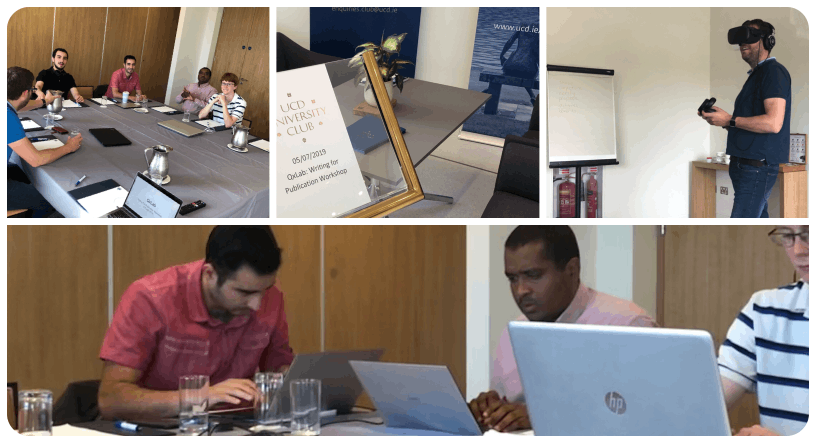QxLab took a couple of days away from our desks for a co-located writing workshop. Basing ourselves in one of UCD’s new University Club meeting rooms, we spent two days working on our research writing. A starter session reflected on writing style and discussed where to publish. We practiced with some free writing and structured writing exercises and reviewed Brown’s 8 questions as a set of prompts.
- Who are intended readers? (3-5 names)
- What did you do? (50 words)
- Why did you do it? (50 words)
- What happened? (50 words)
- What do results mean in theory? (50 words)
- What do results mean in practice? (50 words)
- What is the key benefit for readers (25 words)
- What remains unresolved? (no word limit)
These questions, originally devised by Robert Brown but popularized by Rowena Murray, are a great way to get a writing retreat going. The rest of the sessions were spent progressing our writing towards our personal writing objectives – a bit like a natural language “Hackathon”.
For the final session we chose a short piece of own own writing and shared them for a non-judgemental peer review session where the author could choose the scope for their own feedback. A lot of the feedback followed common themes as we fell into similar traps with our writing.
A recent twitter thread offered a lot of advice we could relate to and a key take home message was to remember was that when you read published papers you only see the finished article. The papers you read have been through countless iterations and review feedback sessions from co-authors, reviewers and copy editors. Don’t compare your first draft to a published paper!
Useful references
Murray, R (2005) Writing for Academic Journals. Maidenhead: Open University Press-McGraw-Hill.
Murray, R & Moore, S (2006) The handbook of academic writing: A fresh approach. Maidenhead: Open University Press-McGraw-Hill.

